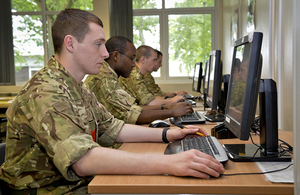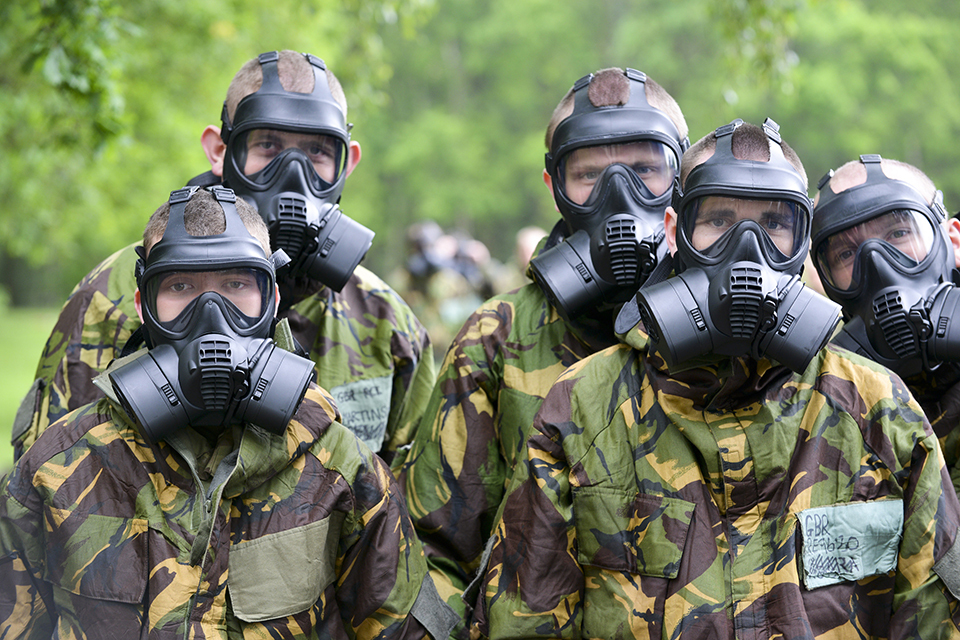Positive feedback on recruit training
Annual recruit trainee tri-service survey reveals highest ever levels of positive attitudes towards training in the UK armed forces.

Phase 1 army recruits taking lessons in maths and English at Pirbright [Picture: Corporal Si Longworth RLC, Crown copyright]
The results showed that 82% of recruits going through basic training (phase 1) and 75% of those going through trade-specific training (phase 2) intended to make a career in the services. This is the highest ever proportion of recruits and trainees who have expressed this desire.
The recruit trainee survey is a tri-service attitude survey which aims to find out what phase 1 recruits and phase 2 trainees think about their training, facilities, food, fairness of treatment and hopes for the future.
Overall the findings, based on feedback between January and December 2013, were positive, and also indicated improvements that have been made across key aspects of training over the year.
The vast majority of those taking part in phase 1 and 2 training expressed a high opinion of the training they received, commenting on it being beneficial and challenging. It was also revealed that they thought they were well cared for by staff, with a good support structure available to them during training.

Army recruits wearing the new general service respirator during chemical, biological, radiological and nuclear training at Pirbright [Picture: Corporal Si Longworth RLC, Crown copyright]
The perception of complaint handling was one area which saw significant improvement on previous years. The results showed a 6% increase in phase 1 recruits and phase 2 trainees, saying they felt that their complaints were being dealt with in a fair manner.
This is the highest level ever recorded and the issue of addressing complaints continues to be a focus in training schools to ensure these improvements progress.
And these outcomes appear to have had a positive impact when it comes to recommending others to join the services, with nearly 90% of phase 1 recruits and phase 2 trainees saying that they would recommend joining the armed forces because of the treatment they have received.